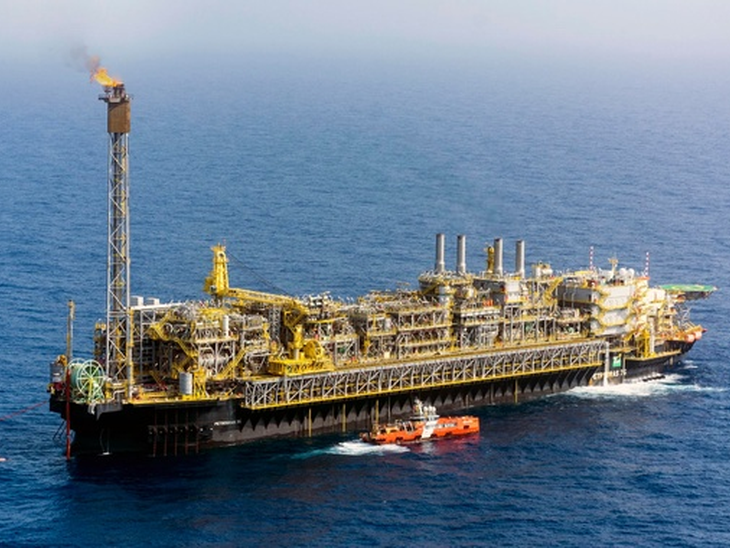
 Production
Production
T&B Petroleum/Press Office ANP

In 2020, Brazil had a record in the production of oil and natural gas, totaling 3.74 million barrels of oil equivalent per day (boe / d). 2.94 million barrels of oil were produced per day (bbl / d) and 127.4 million cubic meters of natural gas per day (m³ / d). This is an increase of 52.71% compared to 2010 (2.45 boe / d).
See below some of the highlights and data on the evolution of Brazilian production in the last decade (2010-2020).
Complete data on national production in 2020 are available on the Dynamic Panel for Oil and Natural Gas Production, on page https://www.gov.br/anp/pt-br/centrais-de-conteudo/paineis-dinamicos-da-anp/paineis-dinamicos-de-producao-de-petroleo-e-gas-natural.
National production
In 2020, national production reached a record 3,740,612.09 barrels of oil equivalent per day. This is an increase of 5.22% in relation to 2019 (3,554,976.06 boe / d) and 52.71% in relation to 2010 (2,449,563.04 boe / d). The last decade has seen a steady increase in production, with the exception of only the years 2012 and 2018.
Natural gas production
In 2020, the average total natural gas production was 127,399.71 Mm³ / d. There was an increase of 102.8% compared to the average natural gas production registered in 2010, which was 62,834.17 Mm³ / d. Associated gas increased 127.8% in relation to 2010 and was the main responsible for the increase in gas production.
Production environment
The production of pre-salt oil equivalent reached 68.61% of the national production in 2020. In 2010, this production represented only 1.53% of the national total. On the other hand, from 2010 to 2020, land production went from 11.60% to 5.95% of national production, and maritime production in the post-salt, from 86.87% to 25.44% of the country's total .
Production regime
New production regimes had a greater participation in the national scenario. While in 2010 practically all the production of oil equivalent came from concession contracts, in 2020 this participation was 78.97%, gaining space the production of the transfer of rights, which reached 19.45% of the national production.
Onshore oil production without Petrobras
In 2010, production from onshore fields, excluding Petrobras production, was 2,955.59 bbl / d of oil. In 2019, there was a strong increase in this production, reaching 11,564.23 bbl / d of oil in 2020, an increase of 291.27% in relation to 2010 and 71.34% in relation to 2019.
Onshore natural gas production
In the terrestrial environment, the production of natural gas had a significant evolution, mainly in the non-associated gas, which presented an increase of 250.56% in 2020 (9,487.21 Mm³ / d) when compared to the production of 2010 (2,706.28 Mm³ / d).
Production by company
In the past decade, the market has increased its diversification. Petrobras' participation as a concessionaire was 92.67% in 2010, reaching 74.01% in 2020, while other companies started to have a more representative participation, either as operator or in consortium with the state-owned company.
Production per basin
In 2010 oil production in the Santos Basin was 0.04 million barrels of oil per day (bbl / d), reaching, in 2020, 1.9 million barrels of oil per day (bbl / d), in due to the growth of pre-salt production. In the same period, production in the Campos Basin went from 1.8 million barrels of oil per day (bbl / d) to 0.9 million barrels of oil per day (bbl / d).
Field production
In 2010, the Roncador field was the largest national producer, with 328,161.68 bbl / d of oil. Since then, fields with great potential went into production and, in 2020, the largest production per field was that of Tupi, with 953,797.07 bbl / d of oil, almost three times higher than the Roncador production in 2010.
Production per well
In 2010, the largest production well was 7-MLS-63HPA-RJS, belonging to the Marlim Sul field, producing an average of 21,906.67 bbl / d of oil. In 2020, the pre-salt wells increased this level and the well 7-BUZ-12-RJS, in the Búzios field, reached an average of 42,829.63 bbl / d of oil, almost double the 2010 record.
Contact us